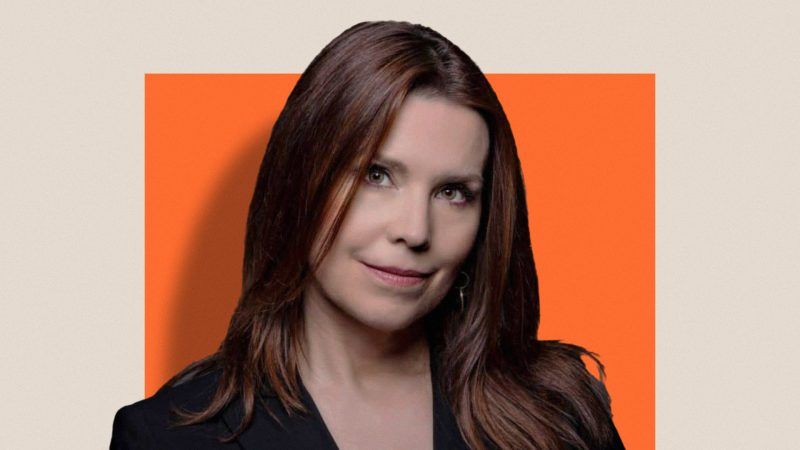Annie Duke: Quitting Is Totally Underrated
The psychologist and poker champion says too many of us don't understand the power of knowing when to walk away.

Quitting is massively underrated, says Annie Duke, an author, psychologist, and former professional poker player who holds a bracelet from the 2004 World Series of Poker.
Her latest book is Quit: The Power of Knowing When To Walk Away. Using examples ranging from Muhammad Ali's refusal to retire from boxing earlier in his career to the over-budget, much-delayed California high-speed rail project to catastrophic American wars in Vietnam, Afghanistan, and Iraq, she makes the case that blind commitment to grit and stick-to-it-iveness routinely leads us down the wrong path is our careers, politics, and personal lives.
She talks about misleading mental tics like the sunk-cost fallacy, the cult of identity, and the endowment effect, and how to understand and reverse them in our personal lives, our work, and our politics. She earned her Ph.D. in cognitive psychology from the University of Pennsylvania, getting her degree in 2023 after taking a 30-year break from academia. We talk about how her experience of knowing when to quit in poker—and higher education—informed her high regard for knowing when to head for the exits.
To see a Reason interview about Duke's previous book Thinking in Bets, go here.
Today's sponsor:
- BetterHelp. Are you at your best? Working with a therapist can help you get closer to the best version of you—because when you feel empowered, you're more prepared to take on everything life throws at you. If you're thinking of giving therapy a try, BetterHelp is a great option. It's convenient, flexible, affordable, and entirely online. Just fill out a brief questionnaire to get matched with a licensed therapist, and switch therapists anytime for no additional charge. If you want to live a more empowered life, therapy can get you there.
Editor's Note: As of February 29, 2024, commenting privileges on reason.com posts are limited to Reason Plus subscribers. Past commenters are grandfathered in for a temporary period. Subscribe here to preserve your ability to comment. Your Reason Plus subscription also gives you an ad-free version of reason.com, along with full access to the digital edition and archives of Reason magazine. We request that comments be civil and on-topic. We do not moderate or assume any responsibility for comments, which are owned by the readers who post them. Comments do not represent the views of reason.com or Reason Foundation. We reserve the right to delete any comment and ban commenters for any reason at any time. Comments may only be edited within 5 minutes of posting. Report abuses.
Please to post comments


Would. And wouldn't tap out.
🙂
😉
This is the exist-for-myself answer.And she's about 4 decades too late as George Gilder surveyed that as it applies to men and marriage and work
On the other side, as an ex-member of a monastery I can say there are few hells like "I have nothing to do and nobody and nothing needs me" bertrand Russell thought the great PROBLEM of the future for most people would be free time. And as far as the setting for his thought, the book "The Conquest of Happiness" what a huge surprise when almost 40 years later I found out that his own daughter (who became a Christian) was driven
to suicide by her father's view of happiness !!!
Reason, progress, unselfishness, a wide historical perspective ... I had heard it all my life, and it filled me with despair KATHERINE TAIT
yes, much time in the monastery convinced me most people are super-wide of the mark about how they'd be with leisure.
THe ancients had a saying "Two things bare a man's soul, Sudden lots of money and sudden lots of free time
Will Nick let her get a word in edgewise? The only way to find out is to listen.
You can't judge a path without timeless truths and time-conditioned application of those truthe. Take Lincoln: Many complete reversals in his personal path (like quitting politics) that were themselves reversed because exterior things changed ( 1854 passage of Kansas-Nebraska Act allowing slavery to expand beyond the boundaries set by Missouri Compromise of 1820 inspired Lincoln to return to politics.)
same unflinching Lincoln
Maybe she has a point but hard to accept defining life by your ability to desert your core faith.